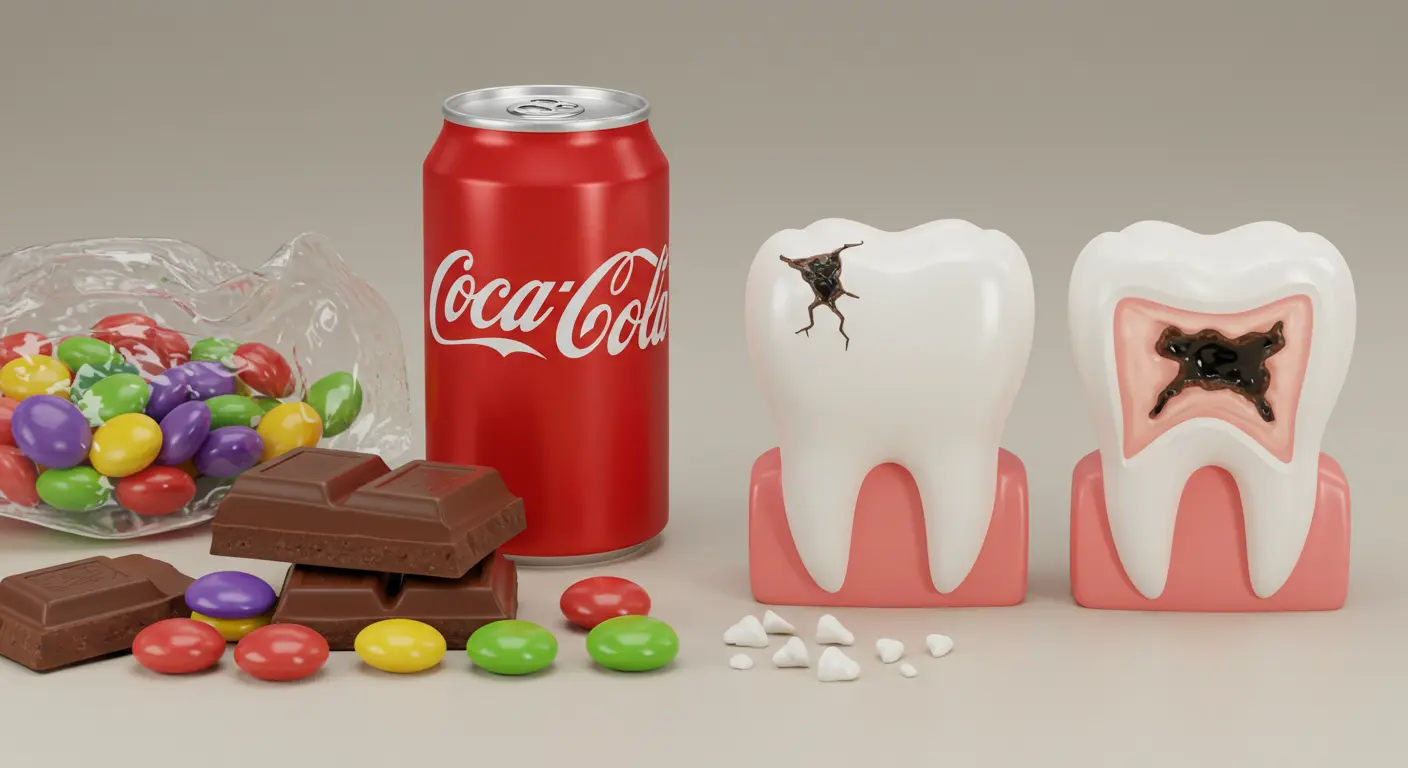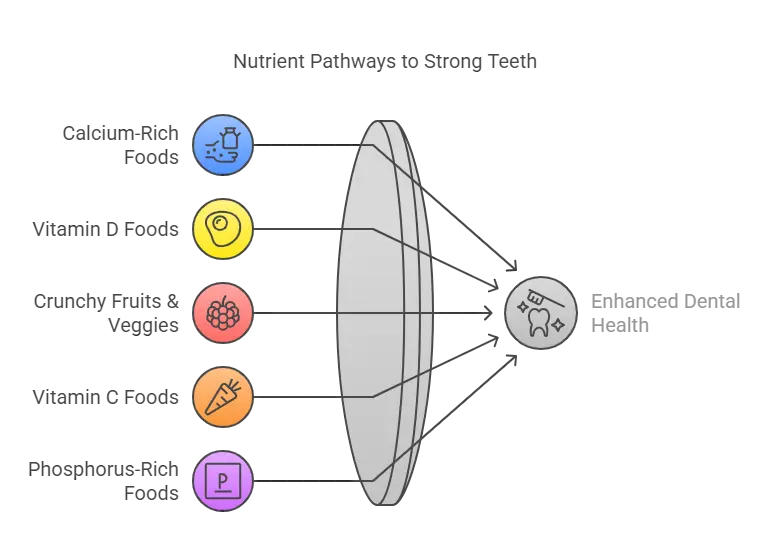Dietary Considerations for Optimal Dental Health: A Comprehensive Guide
Diet plays a pivotal role in maintaining oral health. Consuming a balanced diet rich in essential nutrients not only strengthens teeth and gums but also prevents common dental issues such as cavities and erosion. In contrast, frequent consumption of sugary and acidic foods can lead to severe dental problems over time. In this article, we’ll explore the connection between diet and dental health, offer practical advice, and provide insights into how informed dietary choices can promote a lifetime of healthy smiles.
Why Diet Matters for Dental Health
The relationship between nutrition and oral health is undeniable. A diet lacking essential vitamins and minerals can weaken teeth, while excessive sugar intake feeds harmful bacteria in the mouth, accelerating tooth decay.
Key Statistics on Diet and Dental Health
| Issue | Impact | Percentage of Population Affected |
|---|---|---|
| High Sugar Consumption | Increased risk of cavities | 90% of adults worldwide |
| Vitamin D Deficiency | Weak enamel and susceptibility to decay | 50% of the global population |
| Acidic Food Consumption | Erosion of tooth enamel | 30% of individuals in developed countries |
These numbers highlight the urgent need to educate individuals about the effects of diet on oral health.

Foods That Harm Dental Health
Understanding which foods to limit or avoid is critical in protecting your teeth.
Sugary Foods and Drinks
- Bacteria in the mouth feed on sugar, producing acids that weaken enamel.
- Examples: Candy, soda, desserts.
Acidic Foods and Beverages
- Acid directly erodes enamel, making teeth more susceptible to decay.
- Examples: Citrus fruits, pickles, wine.
Starchy Foods
- Starches break down into sugars and can stick to teeth, increasing the risk of cavities.
- Examples: Potato chips, white bread.
Foods That Promote Dental Health
A balanced diet filled with nutrient-rich foods can strengthen teeth and gums.
Calcium-Rich Foods
- Strengthens teeth and supports jawbone health.
- Examples: Dairy products (milk, cheese, yogurt), almonds, leafy greens.
Foods High in Vitamin D
- Aids in calcium absorption, ensuring robust enamel.
- Examples: Fatty fish (salmon, mackerel), egg yolks, fortified cereals.
Crunchy Fruits and Vegetables
- Stimulate saliva production, which neutralizes acids and washes away food particles.
- Examples: Apples, carrots, celery.
Foods High in Vitamin C
- Promotes healthy gums and prevents gum disease.
- Examples: Oranges, strawberries, bell peppers.
Phosphorus-Rich Foods
- Works with calcium to strengthen teeth.
- Examples: Meat, poultry, fish, nuts, beans.

Comparative Analysis: Healthy vs. Harmful Foods
| Category | Examples | Effect on Teeth | Alternative |
|---|---|---|---|
| Sugary Snacks | Candy, cookies | Promotes decay | Fresh fruits (e.g., apples) |
| Acidic Beverages | Soda, energy drinks | Erodes enamel | Water, herbal teas |
| Sticky Foods | Dried fruits, caramel | Hard to remove, increases decay | Whole fruits, sugar-free gum |
Practical Tips for a Dental-Friendly Diet
- Limit Sugary and Acidic Foods: Consume them sparingly and follow up with water to rinse your mouth.
- Chew Sugar-Free Gum: Stimulates saliva production to combat acidity.
- Drink Plenty of Water: Helps wash away food particles and bacteria.
- Incorporate Dairy Products: These provide calcium and neutralize acids.
- Snack Wisely: Opt for healthy snacks like nuts and vegetables instead of processed options.
- Maintain a Balanced Diet: A variety of nutrient-rich foods supports overall oral and systemic health.

The Role of Education in Promoting Dietary Awareness
Educating patients about the connection between diet and dental health is critical for prevention. Dental professionals should emphasize the following:
- Frequency Over Quantity: Frequent snacking increases acid exposure, even in small amounts.
- Label Reading: Encourage patients to check sugar content in packaged foods.
- Holistic Health: Highlight how oral health affects overall well-being, including heart and digestive health.
Dietary considerations are an essential component of preventive dental care. By avoiding harmful foods and embracing a nutrient-rich diet, individuals can significantly reduce their risk of tooth decay and gum disease. Dental professionals should actively educate their patients on the impact of diet and empower them to make informed choices for their oral health.
Take Action Today!
Start making dietary changes for a healthier smile. For more personalized advice, schedule an appointment with our dental team and take the first step toward better dental health.












